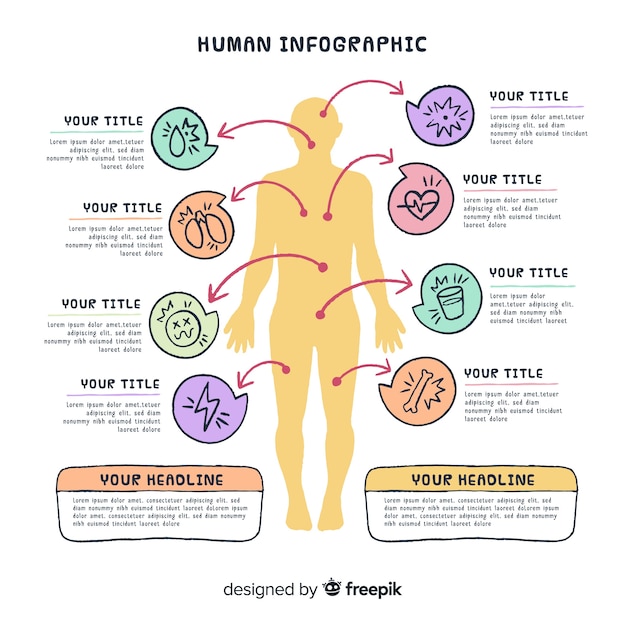Cool Facts About the Human Body

The human brain generates more electrical impulses in a single day than all the telephones in the world combined.
Without the lens in the eye, our vision is actually upside down and our brain flips it right side up.
The human body has enough iron in it to make a 3-inch nail.
The average human heart beats around 100,000 times per day.
Our taste buds are replaced every 10 days.
Human bone is four times stronger than concrete.
The average person produces enough saliva in their lifetime to fill two swimming pools.
The human body contains enough fat to make several bars of soap.
Humans shed about 600,000 particles of skin every hour.
One human hair can support the weight of 3.5 ounces.
Women blink twice as often as men.
The length of your foot is the same as the distance between your forearm and elbow.
The human eye can distinguish about 10 million different colors.
Human bones are stronger than steel.
Ten percent of our bones are in our feet.
Goosebumps are a remnant of our evolutionary ancestors which helped to fluff up their fur for warmth.
The heart of an adult weighs about 300 grams.
A newborn baby has 270 bones, while an adult has 206.
The human nose can remember 50,000 different scents.
The acid in your stomach is strong enough to dissolve razor blades.
Your liver regenerates itself completely every six weeks.
The surface area of the lungs is roughly the same size as a tennis court.
Cool Facts About the Human Body part 2
Nerve impulses in the human body can travel up to 320 km/h.
On average, a person will breathe in about 45 pounds of dust over their lifetime.
Humans are the only animals that shed tears as a response to emotions.
The human body has enough carbon to fill 9,000 pencils.
The strongest muscle in the human body is the masseter, which is responsible for chewing.
The human nose can detect about 1 trillion different scents.
The human skull is made up of 22 bones.
Our brains are 75% water.
The human body has over 600 muscles.
Your taste buds are replaced every 2 weeks.
The surface area of the human lungs is equivalent to approximately that of a small studio apartment.
The human brain is more active at night than during the day.
The human body has enough potassium to fire a toy cannon.
The femur (thigh bone) is the longest and strongest bone in the human body.
Humans blink about 15-20 times per minute.
The human body contains enough calcium to make about 80,000 teeth.
Babies have more bones than adults because some bones fuse together as we grow.
The human nose can detect small amounts of added substances, such as one teaspoon of sugar in a cup of coffee.
The human body has enough sulfur to kill all fleas on an average dog.
Hair and nails continue to grow after death but at a slower rate.
We are about 1 centimeter taller in the morning than in the evening due to spinal compression during the day.
The earlobes contain no bones, only soft tissues.
The human body can lose up to 30% of its heat through the head.